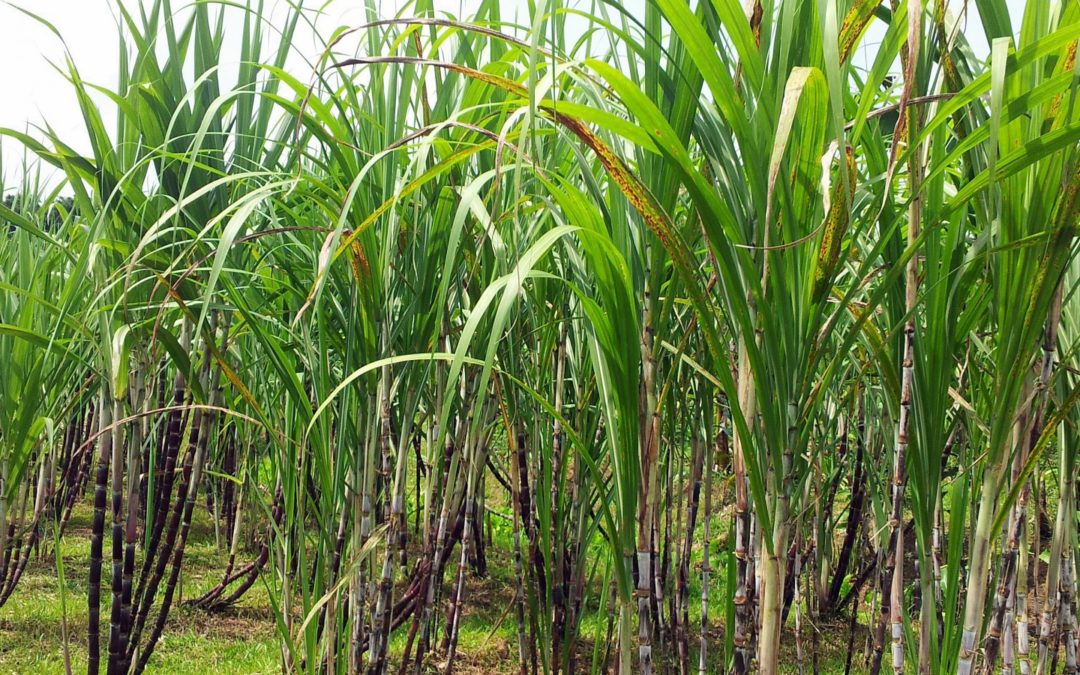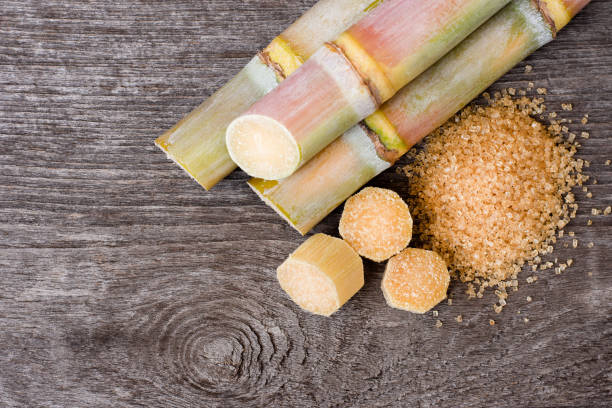Sugar and Cane: Exploring Their Role in Traditional and Modern Cuisine
Sugar and Cane: Exploring Their Role in Traditional and Modern Cuisine
Blog Article
Why Walking Stick Sugar Handling Chemicals Are Essential for Modern Sugar Refining
The duty of walking stick sugar processing chemicals in modern-day sugar refining can not be overstated, as they are essential to boosting both the effectiveness of extraction and the general quality of the end product. Representatives such as phosphoric acid and details flocculants are utilized to eliminate impurities, causing sugar that not only satisfies customer expectations but likewise follows sector requirements. However, the ramifications of these chemicals prolong past high quality, touching upon market dynamics and environmental considerations. This increases important concerns regarding the sustainability of such methods and their effect on the future of sugar manufacturing.
Duty of Processing Chemicals
The effectiveness of walking stick sugar handling hinges significantly on the critical application of handling chemicals. These chemicals play a pivotal duty in enhancing the effectiveness and top quality of sugar removal and refining. From the preliminary phases of juice extraction to the final purification actions, processing chemicals assist in different critical operations.
In the removal phase, chemicals such as phosphoric acid and calcium hydroxide are employed to maximize the clarification process, aiding to remove impurities and suspended solids from the walking cane juice. This not just boosts the return yet additionally ensures the clearness of the end product. Furthermore, agents like flocculants aid in the rapid settling of pollutants, thus simplifying the total procedure.
Activated carbon and ion exchange materials offer to get rid of shade and odor, making certain that the refined sugar satisfies customer quality requirements. Hence, the thorough choice and application of these chemicals are crucial for achieving optimal results in cane sugar handling.
Trick Types of Chemicals
Walking cane sugar handling depends on a selection of crucial chemicals that promote each phase of production. These chemicals play necessary functions in clarifying, lightening, and purifying the sugar extracted from walking cane.
One key classification of chemicals consists of flocculants, such as polyacrylamide, which aid in the clarification process by promoting the gathering and settling of pollutants. Furthermore, calcium hydroxide is usually employed to neutralize level of acidity and assist in the removal of non-sugar elements.
Lightening agents, such as triggered carbon and sulfur dioxide, are utilized to decolorize the syrup, causing a clearer end product. These chemicals assist remove color substances that may impact the sugar's appearance and bankability.
Moreover, phosphoric acid acts as a pH regulatory authority during the handling phases, making certain ideal conditions for the enzymatic tasks included in sugar extraction and filtration.
Various other crucial representatives include edta (ethylenediaminetetraacetic acid), which chelates metal ions that could militarize undesirable responses, and salt hydroxide, which assists in pH control throughout the refining procedure. Collectively, these chemicals enhance efficiency and make sure a top notch walking cane sugar item.
Advantages for Sugar High Quality
Typically ignored, the usage of certain processing chemicals dramatically boosts the general quality of cane sugar. These chemicals play a pivotal duty in refining procedures, ensuring that the end product meets rigorous sector standards for pureness and taste.

Furthermore, processing chemicals assist in achieving a consistent granulation and texture, which are essential for consumer approval. By controlling the condensation process, these chemicals guarantee that the sugar crystals form evenly, causing a much more appealing item that dissolves well in numerous applications.
Furthermore, using these chemicals can boost the life span of Get More Info cane sugar by decreasing dampness absorption and microbial development. Overall, the strategic application of handling chemicals is important for delivering top quality walking cane sugar that meets consumer assumptions and sector needs.
Environmental Influence Factors To Consider

In addition, the energy-intensive nature of sugar refining, intensified by chemical usage, usually leads to enhanced carbon emissions. This adds to environment modification and elevates issues concerning the sustainability of current refining techniques. Additionally, the sourcing of these chemicals may entail methods that threaten biodiversity, such as monoculture farming, which decreases the resilience of farming ecosystems.

To mitigate these impacts, sugar refiners are progressively exploring lasting choices and taking on finest practices that reduce chemical usage. Implementing strenuous ecological management systems can help ensure that the refining procedure lines up with environmental criteria and advertises biodiversity. Eventually, a balanced approach that focuses on find this both sugar quality and ecological stewardship is crucial for the lasting viability of the sugar sector.
Future Fads in Refining
As the sugar market comes to grips with the ecological difficulties linked with traditional refining approaches, ingenious techniques are arising to improve both effectiveness and sustainability. One significant pattern is the adoption of green chemistry principles, which focus on making use of non-toxic, naturally degradable handling chemicals. This change not only reduces ecological effect but also addresses consumer demand for cleaner production techniques.
An additional appealing growth is the application of innovative filtration modern technologies, such as membrane layer splitting up and adsorption processes. These techniques enhance the clearness and high quality of the sugar while reducing the volume of wastewater generated during refining. Additionally, the integration of electronic innovations, consisting of IoT and AI, is changing functional efficiency by making it possible for real-time surveillance and predictive upkeep, hence decreasing source waste.
Moreover, the use of byproducts from sugar refining, such as bagasse and molasses, is obtaining traction. These products can be transformed right into biofuels or value-added products, adding to a round economy within the market. Collectively, these trends signal a change in the direction of more lasting techniques that not only improve functional effectiveness yet likewise straighten view with international sustainability goals, making sure the future feasibility of sugar refining.
Conclusion
Walking cane sugar processing chemicals are essential in contemporary sugar refining, considerably boosting the performance and top quality of sugar extraction. The calculated use these chemicals not only improves the purity and flavor of the end product but likewise ensures regular formation and structure. As the market progressively prioritizes sustainability, the fostering of environmentally-friendly processing agents is most likely to form future trends in refining, ultimately resulting in greater quality products and expanded service life for consumers.
Inevitably, a balanced approach that focuses on both sugar top quality and environmental stewardship is essential for the long-term feasibility of the sugar sector.
Cane sugar handling chemicals are necessary in modern sugar refining, significantly improving the efficiency and top quality of sugar extraction.
Report this page